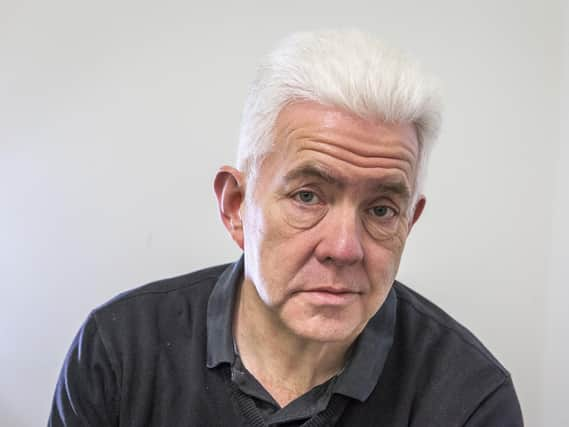The joy of James Joyce and why experimental writing isn't always tripe - Ian McMillan


there’s The Best American Short Stories, The Best American Essays and The Best American Travel Writing, but one that caught my eye towards the end of last year was Best American Experimental Writing and I knew that I had to buy it, simply because of that gleaming word “experimental”.
I’m a sucker for writing that breaks barriers, indeed that takes barriers and paints them in different colours and knits fancy hats out of them before breaking them. So, you might be asking, what exactly is experimental writing and how does it break (or knit hats out of) barriers?
Advertisement
Hide AdAdvertisement
Hide AdThe answer to that begins for me when I was a sixth-former and my visionary English teacher, Mr Brown, introduced me to Finnegans Wake by James Joyce.
I trusted Mr Brown’s recommendations; he’d already introduced me to poets like Ted Hughes, RS Thomas and George Mackay Brown, and novelists like John Steinbeck, but Joyce was something very different. Finnegans Wake is written in a mostly made-up language that dazzles and baffles you at the same time.
Here’s a sample of the writing: “Finnegan, erse solid man, that the humptyhillhead of humself promptly sends an unquiring one well to the west in quest of his tumptytumtoes…” And on it goes, a glorious music that opened all kinds of linguistic possibilities for me and made me realise that, alongside writers of realism and well-structured stories like Steinbeck, there were other less-travelled paths.
Later I discovered BS Johnson, whose novel The Unfortunates was a pile of loose sheets of paper in a box, and he led me to people like Bob Cobbing, who made poems that were sounds or fractured images of single letters.
Advertisement
Hide AdAdvertisement
Hide AdI subscribed to a magazine of experimental writing from Cardiff called Second Aeon and I remember being beside myself with excitement when one of the pages was a photo of some used typewriter ribbon which represented all the poems ever written on that particular machine.
I know that a lot of people think this kind of work is absolute tripe on a stick, to use my Uncle Charlie’s colourful phrase, and it’s true that experimental writing can be pretentious and excluding, but at its best it can take you to exciting and brightly-lit places that are full of joy and thoughtfulness.
So I now have Best American Experimental Writing 2020 in my hands and it doesn’t disappoint.
There’s a story where a lot of the text is redacted by thick black slabs; there’s a series of typed pages that are scribbled all over and sometimes the writing is leaning over or is upside down.
I can’t wait to get stuck in. Tripe on a stick? Maybe: But I like tripe!